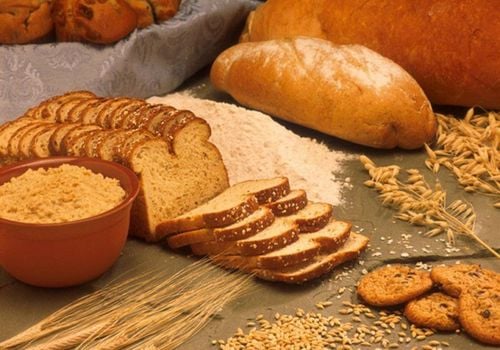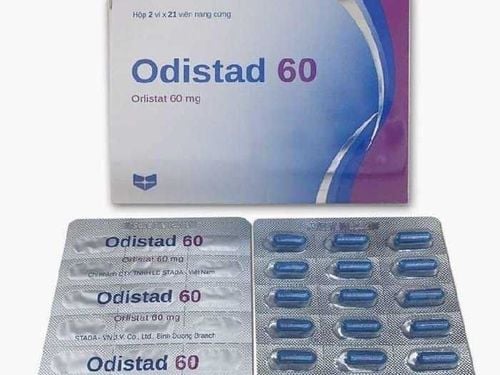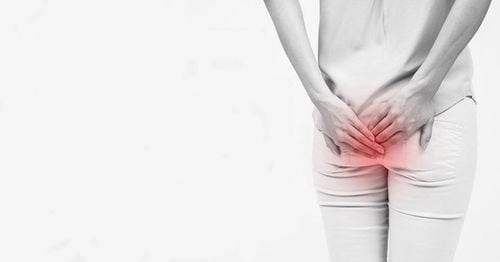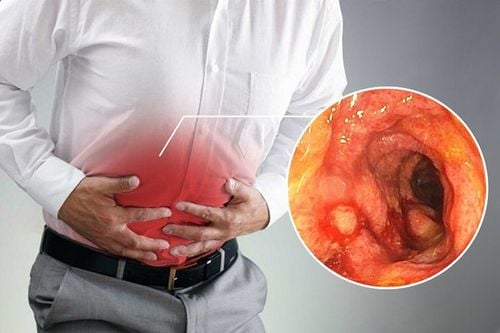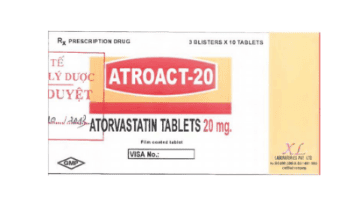This is an automatically translated article.
Posted by Master, Doctor Mai Vien Phuong - Department of Examination & Internal Medicine - Vinmec Central Park International General Hospital
People with ulcerative colitis or other gastrointestinal diseases need to pay great attention to building a reasonable diet to ensure nutrition for the body and not make the disease worse.
4. Specific Carbohydrate Diet
This diet was originally developed to treat celiac disease, but it has since been promoted for other digestive problems. The idea behind it is that the intestines do not digest or use certain grains and sugars very well.
Eating foods containing these ingredients allows bacteria in the gut to multiply too quickly, leading to an excess production of mucus. This contributes to the cycle of intestinal damage, creating the symptoms of ulcerative colitis.
What You Can Eat on a Specific Carbohydrate Diet:
Most Fruits and Vegetables Nuts and Seeds Powders Milk and other dairy products low in lactose Meat Eggs Butter Oil What you can't eat:
Potatoes Legumes Processed Meats Seeds Soybeans Milk Sugar Chocolate Corn Syrup Margarine
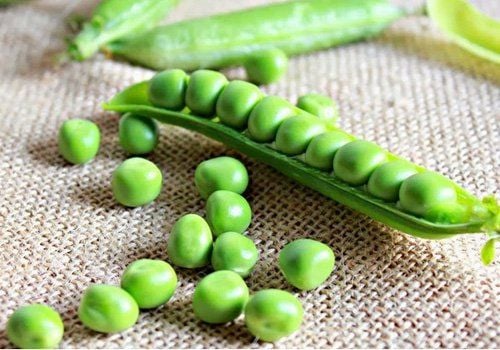
There is some evidence that this diet can improve symptoms of ulcerative colitis. However, you may need to modify it based on your symptoms.
For example, raw fruits, vegetables, and eggs can make diarrhea worse during an outbreak.
This diet can also make you deficient in certain nutrients, including B vitamins, calcium, vitamin D and vitamin E. Ask your doctor if you need a supplement if you follow the diet. Specific carbohydrates or not.
5. Low FODMAP diet
Low-FODMAP diet is similar to specific Carbohydrate diet. Both of these diets lead to the premise that carbs and sugar are poorly absorbed in the gut leading to bacterial overgrowth and ulcerative colitis symptoms.
However, the components of this diet are slightly different.
What you can eat on a low-FODMAP diet:
Bananas, blueberries, grapefruit, honey Carrots, celery, corn, eggplant, lettuce All meats and other protein sources Nuts Rice , oats Hard cheese Maple syrup What you can't eat:
Apples, apricots, cherries, pears, watermelon Brussels sprouts, cabbage, legumes, onions, artichokes, garlic, leeks Rice pasta, rye Milk, yogurt, soft cheeses, ice cream Sweetener High-fructose corn syrup While a low-FODMAP diet may improve symptoms such as bloating and gas, it will not reduce inflammation and prevent damage to your digestive tract.
If you want to try this diet, ask a dietitian to help you figure out which sugars make your symptoms worse and which ones you can still eat.
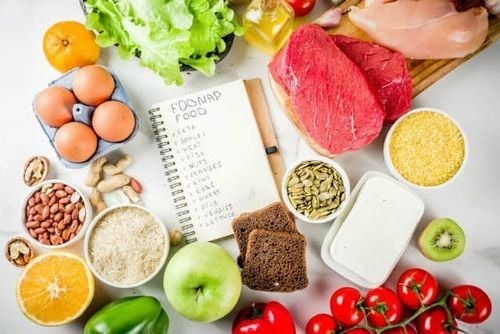
6. Gluten Free Diet
Gluten is a protein found in grains such as wheat, rye, and barley. Some people with IBD find that cutting down on gluten improves their symptoms, although there's no evidence that the diet slows digestive damage.
What you can eat on a gluten-free diet:
Fruits and vegetables Beans, seeds and legumes Eggs, fish, poultry and meat Most low-fat dairy products Grains like quinoa , corn, buckwheat, flax and amaranth What you can't eat:
Wheat, barley, rye and oats Processed products such as beer, cakes, bread, pasta and gravy from these grains
7. Mediterranean Diet
The Mediterranean diet includes fruits and vegetables, poultry, fish, dairy, whole grains, nuts, olive oil and red wine. Red meat is only included in small amounts.
Although the Mediterranean diet has not been well studied in people with ulcerative colitis, it has been shown to reduce inflammation in general.
Researchers are currently investigating how it works against a specific carbohydrate diet for treating inflammatory bowel disease.
What you can eat on the Mediterranean diet:
Fruits Vegetables and legumes Nuts and seeds Grains Fish Poultry Dairy products Eggs Olive oil and healthy fats This diet doesn't actually restrict any foods, although it does include red meat in limited amounts.
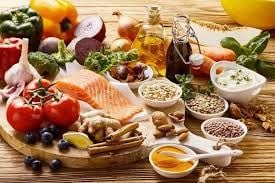
8. Food to eat
Your dietary needs may change during a flare-up. In general, the best foods for people with this condition include:
Most fruits and vegetables Lean protein sources like fish, chicken, lean pork, eggs and tofu Grains and other foods other cereals
9. Foods to Avoid
Certain foods can worsen your symptoms, including:
Fruits with seeds and peels Dairy products Spicy foods Caffeine Nuts Alcohol Food diary Everyone's background is different, so it's possible that two people with ulcerative colitis have different trigger foods.
Recording what you eat during the day and when your digestive system is working can help you and your doctor narrow down your individual food triggers. This can be especially helpful if you're trying a new diet.
Conclusion Creating a cure for ulcerative colitis is not one-size-fits-all. Your dietary needs and restrictions will change as your symptoms appear and disappear.
To ensure that you eat a balanced diet of nutrients and do not aggravate your condition, work with a dietitian. You may need to keep a food diary to see what foods you cannot tolerate.
Patients should consult a doctor and a nutritionist to find the right diet for their inflammatory bowel disease. If you have a need for consultation and examination at Vinmec Hospitals under the national health system, please book an appointment on the website for service.
Please dial HOTLINE for more information or register for an appointment HERE. Download MyVinmec app to make appointments faster and to manage your bookings easily.
ReferencesCrohn's disease and ulcerative colitis nutrition therapy. (n.d.). uccs.edu/Documents/peakfood/hlthTopics/Crohns%20Disease%20Nutrition.pdf Diet and Inflammatory Bowel Disease . (n.d.). med.umich.edu/ibd/education/diet.html Haskey N, et al. (2017). An examination of diet for the maintenance of remission in inflammatory bowel disease. DOI: 10.3390/nu9030259 Hou JK, et al. (2014). Diet and inflammatory bowel disease: Review of patient-targeted recommendations. DOI: 10.1016/j.cgh.2013.09.063 Kakodkar S, et al. (2017). Diet as a therapeutic option for adult inflammatory bowel disease. DOI: 10.1016/j.gtc.2017.08.016 Mayo Clinic Staff. (2019). Gluten-free diet. mayoclinic.org/healthy-lifestyle/nutrition-and-healthy-eating/in-depth/gluten-free-diet/art-20048530 Mayo Clinic Staff. (2017). Low-fiber diet do's and don'ts. mayoclinic.org/healthy-lifestyle/nutrition-and-healthy-eating/in-depth/low-fiber-diet/art-20048511?reDate=14022019





